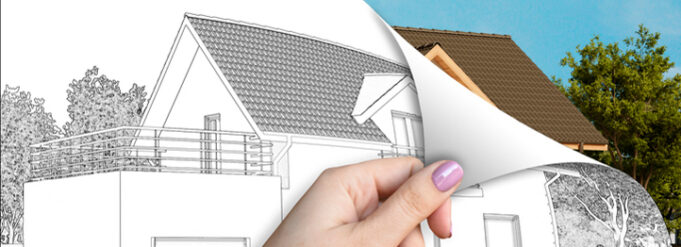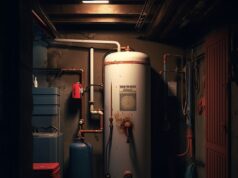Should you flip your property, or is it more profitable to turn it into a rental?
What Is House Flipping?
In case you aren’t familiar, flipping houses is the practice of buying a property – often one that is in serious need of repair or updating – then fixing it up and reselling it for a profit. For example, let’s say you find a home in a good area with a shoddy exterior and a neglected interior. You spend $100,000 on the property and $60,000 on upgrades making it nicer. Then, you sell it for $170,000, pocketing the $10,000 as profit – and as payment for the work you put in.
This is an attractive possibility to real estate investors willing to put in the time and effort it takes to improve a property. It’s also very fast, giving you the potential to collect your profit in a few months. However, there are some downsides to consider as well.
The Risks of Flipping Houses
There are several risks when it comes to flipping houses.
For example:
Underestimating costs. When looking for a property to buy, house flippers have to do a lot of math. They have to estimate the future sale price of the home, the purchase price of the home, and most importantly, the cost of renovations. Unfortunately, most inexperienced house flippers end up underestimating renovation costs. They think they can get a repair job done for $5,000 but end up spending $7,500 on materials alone. A couple of missed expenses is all it takes to completely undermine the profitability of the project.
Missing key issues. You’ve walked through the home, but are you confident that you’ve seen everything there is to see? Even experienced home inspectors can miss important flaws or issues. If you’re halfway through renovating the home and you discover a leak or an electrical wiring problem, you could be on the hook for thousands of dollars of additional work.
Struggling to sell. Let’s say you’ve bought a property for a great price, you’ve done the work at an affordable rate, and the property is fixed up and ready to go. At this point, there’s still no guarantee that your property is going to sell. You can list, but you might not get any offers. This could ultimately force you to hold the property for longer than you anticipated, or force you to drop the price.
Dealing with no cash flow. Holding the property isn’t always a bad thing, but throughout your renovations and improvements, you’ll have no cash flow to offset your expenses. This can make it difficult to stay afloat while doing the work.
What Is Property Renting?
Renting a property, by contrast, allows you to keep the property indefinitely. You may make upgrades, repairs, and other improvements to the property to make it more attractive, but your ultimate goal is getting people to occupy the property, rather than selling it. Your tenants will pay you a set amount of rent each month, typically exceeding your monthly expenses. This allows you to make a small profit each month while continuing to hold the property and benefitting from appreciating property prices in the area.
The Risks of Property Renting
Of course, there are some risks associated with property renting as well:
Vacancies. If your property isn’t occupied, you won’t be collecting any income – but you’ll still be responsible for upkeep and expenses. Because of this, extended vacancies can kill your profitability. You can combat this by choosing a property in an attractive area and marketing it heavily to attract new tenants.
Low demand/low rent. Rental strategies also suffer when there’s low renter demand; you’ll either be stuck with a vacancy or you’ll be forced to lower your rent. This is often a byproduct of choosing a property in an unattractive area.
Problematic tenants. Renting also means trusting tenants to take decent care of your property. Occasionally, you’ll find problematic tenants who destroy or damage your property, or those who are unwilling or unable to pay rent on time. Better tenant screening can help you minimize the possibility of these types of issues.
Why Renting a Property Is (Usually) Better
Flipping houses can be enormously profitable, but ultimately, renting a property is usually the better option.
Here’s why:
Consistency. Unless you’re a seasoned pro, house flipping is kind of a gamble. Investing in rental property is a much more consistent strategy. If you want a reliable, predictable way to make money, turning a home into a rental is better than upgrading it and hoping you’ll be able to sell it for a profit.
Multiple ways to make money. While renting a property, you can make money in multiple ways. You can increase cash flow by charging rent and offering additional amenities and services (such as coin-operated washers and dryers), but you’ll also stand to make money from property appreciation over time.
Passive investing. For the most part, investing in rental property is a passive investment. You’ll have to put in some time to improve and market the property, as well as take care of tenant-related issues (unless you hire a property management company), but the time you spend will still be minimal.
Greater control. Converting the home into a rental also gives you more control. You’re not entirely subject to market conditions, and you’ll have more options for the property in the future.











